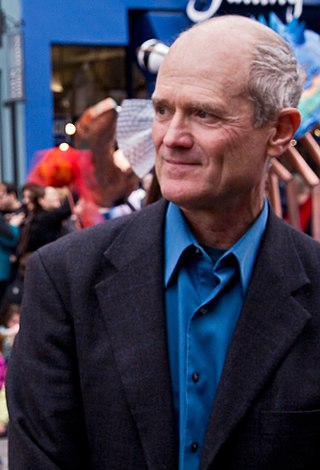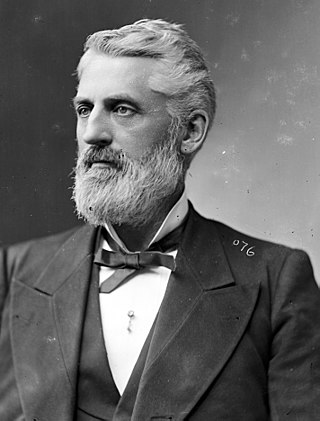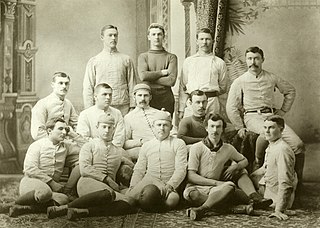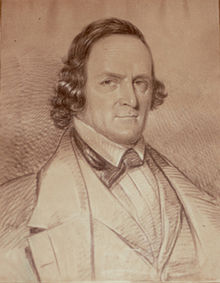
Ann Arbor is a city in and the seat of government of Washtenaw County, Michigan, United States. The 2020 census recorded its population to be 123,851, making it the fifth-most populous city in Michigan. Located on the Huron River, Ann Arbor is the principal city of its metropolitan area, which encompasses all of Washtenaw County and had 372,258 residents in 2020.
Sebewa Township is a civil township of Ionia County in the U.S. state of Michigan. As of the 2010 census, the township population was 1,171 and decreased to 1,124 at the 2020 census.
The recorded history of Ann Arbor, Michigan, began with settlers from various eastern states in early 1824.

Randolph Rogers was an American Neoclassical sculptor. An expatriate who lived most of his life in Italy, his works ranged from popular subjects to major commissions, including the Columbus Doors at the U.S. Capitol and American Civil War monuments. He died in Rome Italy on January 15 1892 at age 66.

John Hieftje is an American politician who served as the 60th mayor of Ann Arbor, Michigan. Hieftje began his political career in 1999, when he was elected to the city council for Ann Arbor's 1st Ward as a Democrat. He was first as Mayor in 2000, and was re-elected in 2002, 2004, 2006, 2008, 2010 and 2012.

Albert H. Wheeler was an American life-sciences professor and politician in Ann Arbor, Michigan. He became the city's first African-American mayor, serving in the office from 1975 to 1978.
Lawrence Kestenbaum is an attorney, politician, and the creator and webmaster of The Political Graveyard website.

Gary Grimshaw was an American graphic artist active in Detroit and San Francisco who specialized in designing rock concert posters. He was also a radical political activist with the White Panther Party and related organizations.
William Sumner Maynard was a politician from the U.S. state of Michigan, who served as mayor of Ann Arbor, Michigan from 1856 to 1858 and again from 1865 to 1866.

Forest Hill Cemetery is a 65-acre (260,000 m2) cemetery at 415 Observatory Street in Ann Arbor, Michigan. It was designed by James Lewis Glenn and opened in 1857.

Charles Clinton Ellsworth was a politician from the U.S. state of Michigan.
Benjamin Franklin Hawkins Witherell was a jurist in the U.S. state of Michigan. He served as a justice of the Michigan Supreme Court in 1857.

John Monteith was a United States Presbyterian minister, educator, abolitionist and a founding father of the University of Michigan, formerly known as University of Michigania or the Catholepistemiad. Monteith served as president of the university from 1817 through 1821. During his five years in Detroit, he also served as the city's first librarian, and founded the first Protestant church in Detroit and the first Presbyterian church in what is now the State of Michigan.

Washtenaw County Fairgrounds is a former fairground and football field for the University of Michigan in Ann Arbor. The City of Ann Arbor purchased the 40-acre property in 1951 to become Veterans Park. The Fairgrounds then moved to Ann Arbor-Saline Road.

Samuel Floyd Angus was an American business owner and professional sports team owner. He was the principal owner of the Detroit Tigers of the American League from November 1901 through October 1903.
Elisha Walker Rumsey was an American pioneer and co-founder of the U.S. city of Ann Arbor. He and John Allen founded Ann Arbor in 1824.

Detroit's Marwil Bookstore was a local bookstore in Detroit, Michigan. The store was independently owned by Milton and Lenore Marwil. Located on the Wayne State University campus, it was a cultural attraction for the students, faculty and community of Wayne State University. Marwil Bookstore closed permanently in December 2013.
Henry Rumsey was an American judge and politician in the U.S. state of Michigan. He was a member of the Michigan Senate in its first term, and a portion of his farm became the campus of the University of Michigan.












